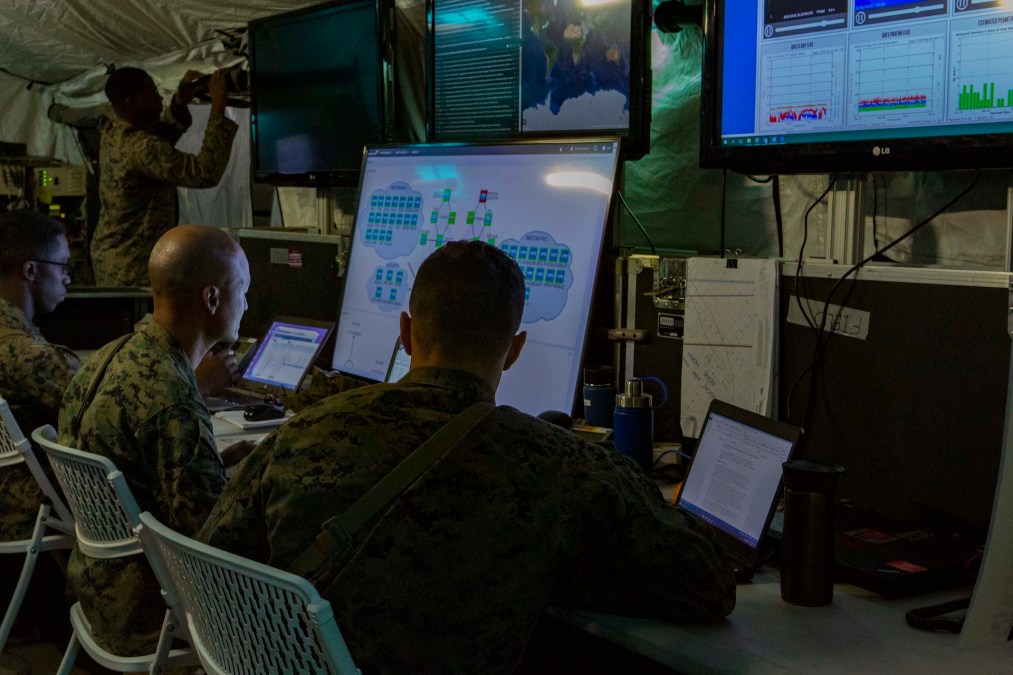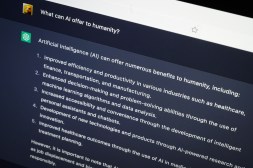Marines get the green light to be ‘Phantoms’ at Air Force’s AI accelerator

An artificial intelligence hub led by the Department of the Air Force and the Massachusetts Institute of Technology is opening its doors to Marine Corps participation, according to a Tuesday announcement.
Until recently, the only active-duty members of the military tapped to participate in the DAF-MIT AI Accelerator were airmen and guardians. However, two Marines have been selected to be part of the next cohort of so-called “Phantoms.” Over a five-month period, they will conduct research and be expected to ultimately produce a “publishable impact paper” about their work, according to a release.
“Marines have always been innovators, from amphibious operations to naval aviation, and will continue to carry on that tradition,” Lt. Gen. Matthew Glavy, deputy commandant for information, said in a statement. “AI presents yet another opportunity for Marines to showcase their ability to fuse technology, people and processes to generate favorable outcomes across the competition continuum.”
“Partnering with MIT and the DAF AI Accelerator provides an opportunity to rapidly upskill our Marines to support the Marine Corps’ acceleration of AI adoption, ultimately leading to increased decision advantage for commanders at all echelons,” he added.
The hub was launched a few years ago to boost military-related artificial intelligence research and facilitate rapid prototyping and scaling of algorithms to benefit the Department of the Air Force and the civilian sector.
However, acquiring and adopting the technology isn’t just a top modernization priority for the Air and Space Forces. The other services and the Office of the Secretary of Defense are keen on it as well, and it’s seen as a critical enabler of the Pentagon’s warfighting construct known as Combined Joint All-Domain Command and Control (CJADC2).
“Marines bring a unique perspective to military operations, a perspective that can only enrich the AIA’s own diversity of experience,” Air Force Col. Garry Floyd, director of the accelerator, said in a statement. “Given the broad nature of the AIA’s portfolio we are certain to find synergies across our efforts to develop and deploy difference making capabilities for operations.”
The announcement about Marines joining the next cohort of Phantoms came less than three weeks after the Corps released its new artificial intelligence strategy.
Service leaders see opportunities to apply the tech across warfighting functions as well as business operations. However, challenges must be overcome, including misalignment of the technology with mission objectives, competency gaps, difficulty deploying capabilities at scale, governance frameworks that hinder innovation, and barriers to collaboration, according to the document.
Upskilling and talent management are key focus areas of the strategy, which highlights the need to boost service members’ know-how for building, supporting and sustaining artificial intelligence systems, and support training and education “at all levels” of the force.
“Immediate action is required to address current skill and knowledge shortfalls, while the long-term solution of transforming the Marine Corps workforce is being planned and executed,” the strategy document states.






